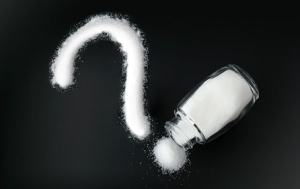While it may be good to take some things ‘with a pinch of salt’, we may not want to take this advice literally.
Too much salt may be harmful to us by predisposing us to hypertension, stroke and heart disease. This is especially true about people who have immediate family members who have hypertension, stroke and heart disease. Hypertension harms the heart, kidneys, brain and even the eyes.
To be clear, salt is very important for the body’s proper functioning. It helps us conserve water in the body, it heps in balancing acids and bases in our body, it helps us maintain our blood volume and our muscles and nerves cannot function without it.
The problem is that most of us eat way too much salt, mostly out of habit, and our kidneys may not be able to get rid of all that salt and it accumulates in our bodies.
Salt (common salt or sodium chloride as the chemists will want us to call it) is made up of sodium and chloride and it is recommended that we take 2.4 grams of sodium a day which translates to 6 grams of sodium chloride a day (that’s just 1 teaspoon!). This 6 grams should include all of the naturally occuring salt in food, the one we use in cooking and the one we add at the table.
Too much salt in our diet contributes to hypertension, other heart diseases and stroke. (Several studies have shown this). Reducing the intake of salt can help prevent these diseases. We have to bear it in mind that our taste buds adjust and get accustomed to the amount of salt we take over time so they may need some time to adjust.
The following will help in reducing the amount of salt we eat:
- Not adding salt to food on the dining table.
- Using spices and herbs (eg onion, garlic, ginger, thyme) to add flavour to our cooking thereby reducing the amount of salt required.
- Buying fresh food and vegetables instead of processed and canned food (a great deal of salt is used to preserve these canned foods!)
- Using less salt that the recipe demands.
- Rinsing canned foods to wash off some of the salt.
- Choosing low sodium canned food if we opt for processed food (read the labels!).
- Going easy on mayonnaise and ketchup, they are high in salt.
- Eating lots of fruits and vegetables.
Eating too much salt is more of a habit and for our long term well-being we should kick this habit, shouldn’t we?
Caveat: some of us may have low salt in our body and I would not recommend this but this will help people with a family history of hypertension, stroke or heart disease.
